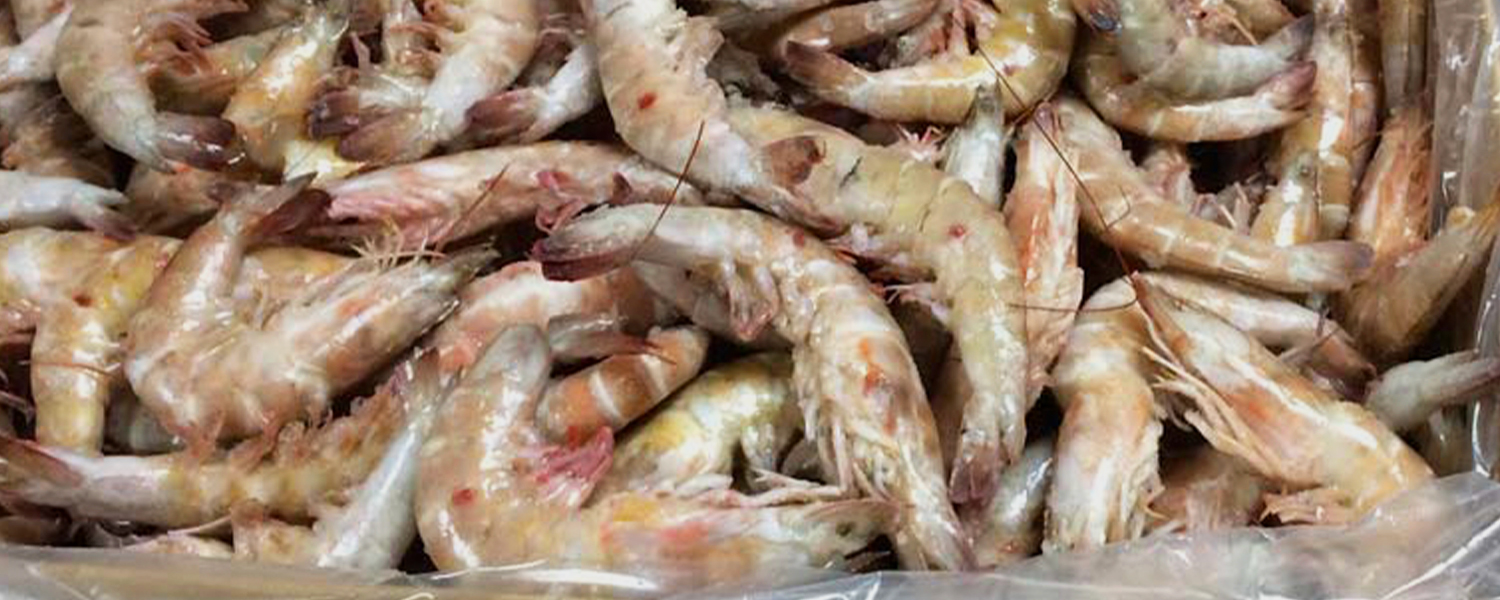Both Sides of the Coin: Part Two
November 3, 2017

October is National Seafood Month, when we celebrate the wonder that is seafood. It’s also an appropriate time to continue what I started in a previous post, Both Sides of the Coin Part 1.
Do you remember how I started this? I wanted to shed light on the differences between farmed, imported shrimp* and wild-caught, domestic shrimp, to go deeper than taste or origin, and examine the stuff that really matters; to show how a small choice, like what shrimp we eat, actually isn’t a small choice at all; it shapes your health, and our world.
Speaking of our world, have you ever wondered how that Asian/Central/South American shrimp gets into our neck of the woods? You’re right, it’s complicated and boring, so I’m going to skip straight to the important parts: FDA inspections, and dumping.
This pertains to your health and safety, so pay attention.
The Food and Drug Administration, aka the FDA, protects public health by making sure stuff we ingest won’t kill us, including edibles coming in from abroad, like seafood. If an FDA inspection reveals something fishy (HAH!), the shipment is “refused,” and that seafood can’t be sold in the US. Why might it be refused, you ask? Because it’s “filthy” (that’s a technical term), or contains banned antibiotics or chemicals, or it’s rotting.

We love the FDA for saving us from that litany of disgustingness.
In theory, ours is a great system; in practice, well… there are some issues.
For one, the majority of refused shipments are seafood products, and the FDA only has the resources to inspect about one percent of seafood imports. The FDA are painfully aware of their limitations and have been doing their best to keep imported seafood kosher. Let’s be honest, though; we’re probably still eating filthy seafood. There’s just too much coming in to catch everything. Remember—we consume 4.1 pounds of shrimp per year, and 3.8 of those pounds are imported.
If you care about the survival of local businesses
then pay attention.
And then there’s dumping. Here’s a made-up example: Pretend you’re the owner of a big shrimp farming operation in, say, India. In order to encourage people to be shrimp farmers, the Indian government shoulders some of the costs of doing business; you and your fellow farmers get a cash payout for every pound of shrimp you produce. Hooray!
Now let’s say you decide to export your crustaceans to a nation that loves them and has cash to spend. Naturally, you choose the United States. Americans love cheap shrimp—you’ve priced yours at two dollars less than American shrimp– and buyers there snatch up your product, so you sell a LOT. The Indian government’s cash subsidy keeps you in the black. Meanwhile, American shrimp isn’t moving; its price reflects how much it costs Americans to catch their shrimp and get it to market. Theoretically, US shrimpers could lower their price in order to compete, but if they sell it for so little, they’ll soon go out of business. And yet, if they don’t sell any because people think it’s too expensive, they’ll also go out of business. Too bad, so sad.
That’s dumping in a nutshell. It is illegal, and an industry can fight it by filing a suit with the World Trade Organization, but while the sluggish cogs of lawful industry slowly disgorge the results of their investigation, American businesses suffer. Full disclosure, some members of the American shrimp industry have filed suits with the WTO to combat dumping; some were successful, some not.
I could go on. I want to go on. Shrimp is like Simba in the Lion King when Mufasa tells him that everything the light touches is their kingdom. It’s all connected, man! Those ten legs have toes in every pie: fair labor laws, human health, world trade policy, domestic jobs, culture…

The point is, when you order that dish, or reach for that bag, think of this article and take a couple extra seconds to appreciate everything you’re supporting, or not supporting, with the power of your wallet. It matters. It really does.
* I want to reiterate, strongly, that not all farmed, imported shrimp is steeped in human rights abuses or E. coli; there are wonderful companies out there who are champions of ethically and safely produced shrimp, so if you must buy imported, find them.
Suggested Articles
ASPA Fights Back Against Indian Shrimp Imports Made with Forced Labor
Port Arthur, TX (April 16, 2024) The American Shrimp Processors Association (ASPA) is taking aggressive action to combat imports of shrimp from India that were...
Read More April 2024American Shrimp Processors Association Launches Trade Petitions Addressing Unfair Dumping and Illegal Subsidies
Read additional information about the trade petitions, including public copies of ASPA filings. Today, the American Shrimp Processors Association (ASPA) filed trade petitions seeking antidumping...
Read More October 2023Bipartisan Legislation Introduced to Ensure the Availability of Healthy and Safe American Shrimp
WASHINGTON, DC – U.S. Representatives Garret Graves (Louisiana) and Kathy Castor (Florida) introduced legislation to stop unsafe, illegally-produced shrimp from reaching consumers. Much of the shrimp...
Read More August 2023

